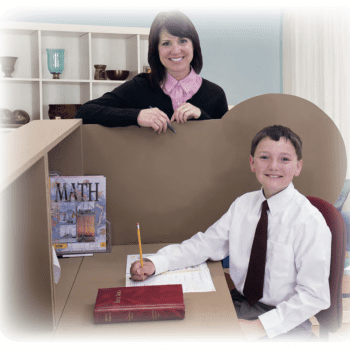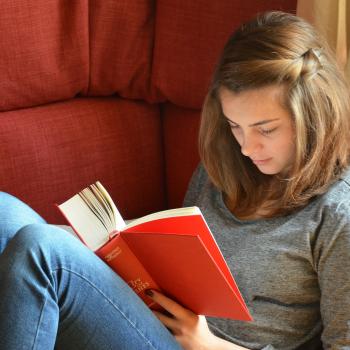When I was a young teen I made some new friends, a couple of homeschooled girls like me, both right around my own age. They were the oldest in a large homeschooling family that in some ways was very much like mine own. In other ways, though, their family was very different.
As far as I could see, unlike my mother their mother never lesson planned, never sat down with her children to work on multiplication tables, and never pulled out the science supplies and a biology book. Their mother was very involved and active in an all-consuming interest of her own, and the children were pretty much left to their own devices. The children had interests, but they never really had the tools they needed to carry those interests out, and they certainly never had the basic education in a range of subjects like math, English, and science that we so often take for granted. And while I won’t get into specifics, the repercussions of missed opportunities have followed my friends and their younger siblings into adulthood.
What’s most baffling is that no one said anything. To my knowledge, the other homeschool parents (including my own) not only didn’t report this family or intervene and try to help, they never even said that what was going on was wrong. It’s true that someone might have said something that I didn’t hear, but I was pretty up on the homeschool community gossip (homeschool moms do talk, or at least they did in my community), and I knew well who was disapproved of for having the wrong religious doctrine or being too submissive or not submissive enough. I’m pretty sure I would have heard something.
Anyway, this is why, when homeschool parents inveigh against outside oversight and say that the homeschool community provides its own sort of internal accountability and self-policing, I want to bang my head into a wall. It doesn’t work. The culture of the homeschool community in which I grew up was such that I’m really having a hard time imagining anyone ever reporting anyone, or even simply calling them out for what they are doing.
Why is this? There is a range of factors.
There is the idea that family always knows whats best and that the family unit should be sovereign. If a family decides not to educate their kids, then, that’s their business. Inviting the government into a family’s affairs, or even questioning how they run their family, is a violation of that family’s autonomy.
There is the idea that even going completely uneducated is better than being sent to “government” schools. We saw this in HSLDA’s response to Josh Powell’s story, a story that in many ways mirrors that of the family I knew growing up—except that unlike my childhood friends, Josh ultimately fought his way into getting an education.
There is the idea that failure to educate is simply “unschooling,” and therefore a perfectly legitimate way of homeschooling. John Holt would probably be horrified to know that his ideas are today being used by some to justify robbing children of an education. But then, maybe he would have agreed with HSLDA and argued that even no education at all is better than “government” schools.
There is the idea that the importance of education is overrated.—that it is life experience, family living, and the passing on of religious values that matters. It doesn’t matter whether a child knows algebra or can write an essay, the argument goes. If they love Jesus and have a heart dedicated to serving others, that’s enough.
There is this idea that government involvement in anything ever is always a bad thing. The highest value is the individual freedom of every adult citizen. To get the government involved would put people under the thumb of bureaucrats intent on telling people what to do and result in corruption, child-snatching, and worse.
I don’t trust the homeschool community to police itself—I just don’t. It’s worth noting that some of the ideas listed above aren’t isolated to the Christian homeschool community—they’re more endemic than that. In other words, it’s not like this problem can be solved by telling the homeschool community to self-police better—they don’t self-police because they can’t self police give the nature of their beliefs. As long as these ideas remain knit through the homeschool community, I will be an advocate for outside oversight. To be less would be a betrayal.
Because here’s the thing—my friends’ mother wasn’t a bad person. She just needed to actually be required to educate her children and to be held accountable for doing so (this isn’t the first time I’ve written about this need for accountability). If she’d lived in a state with required subjects and periodic assessments to verify that instruction and learning were taking place, things would almost certainly have been different. She would have pulled things together, and while the education she provided her children might not have been perfect, it would have been something.
[Note: I’ve edited this post to make it clear that I was myself homeschooled. I have this information in my about section, and I had thought it was clear from context in the original version of this post, but given that at least one person has read the post and assumed that I wasn’t homeschooled and only had homeschooled friends I thought I’d edit slightly to make sure it’s perfectly clear.]














